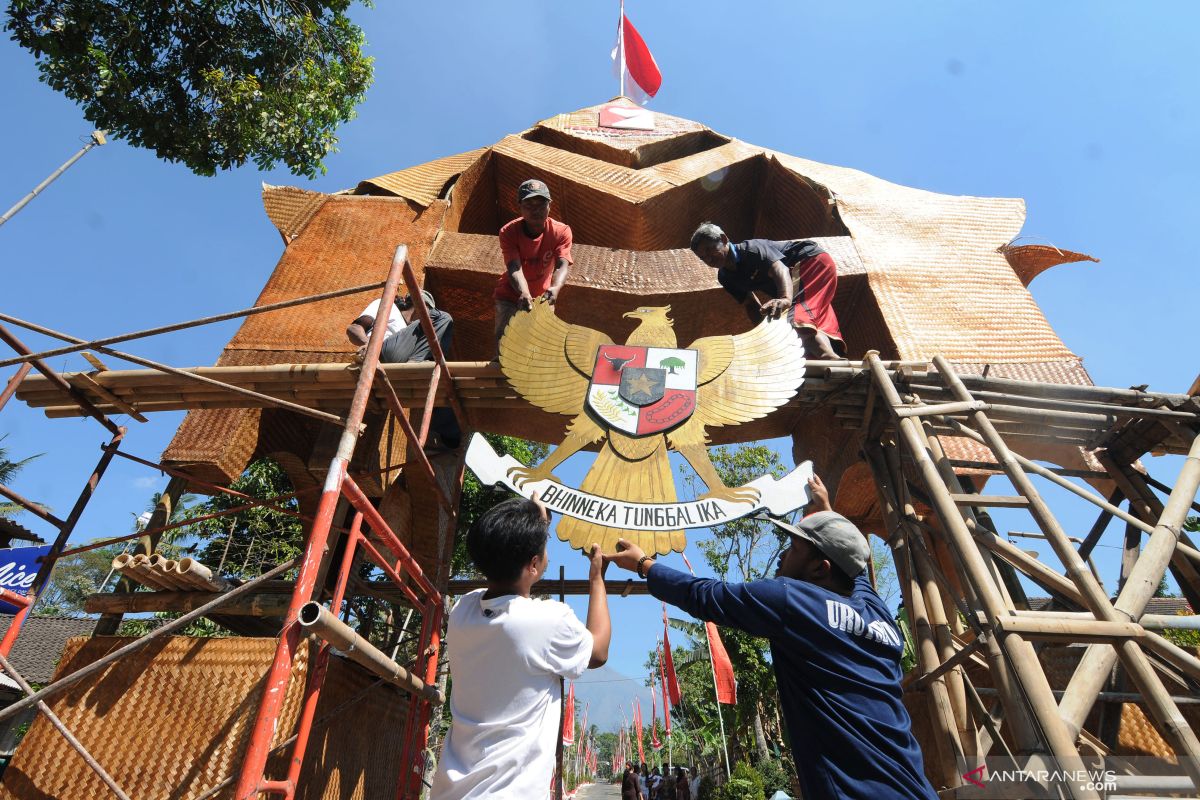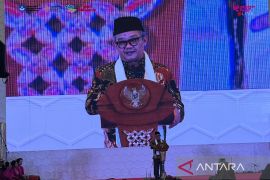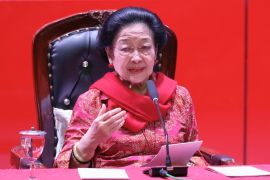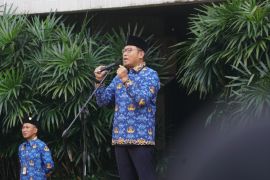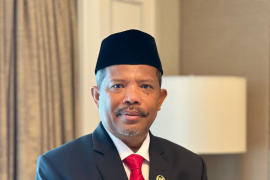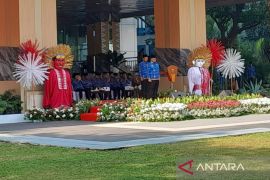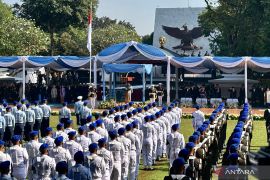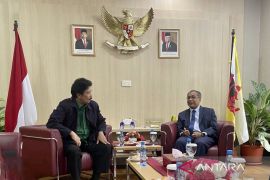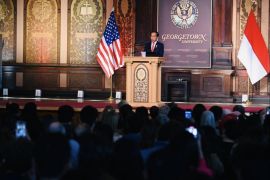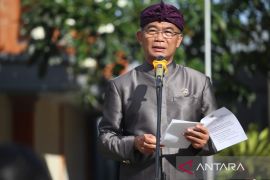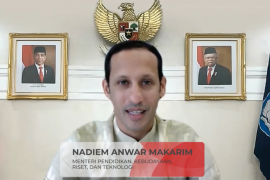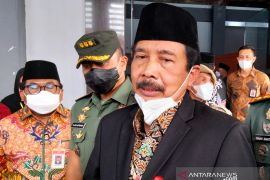We should be grateful that Indonesia, our shared great home, remains firm despite many challenges. Pancasila is a nation's principle, guiding star and unifier to us allJakarta (ANTARA) - President Joko Widodo intentionally highlighted the importance of upholding Pancasila as Indonesia's sole state ideology, during his State address at the annual session of the People's Consultative Assembly (MPR) in the Parliament Building, Jakarta. Jokowi delivered this State address a day before the 74th anniversary of Indonesia's Independence Day on August 17, a day of contemplation and celebration for the entire nation.
The highlight of this annual commemoration is the ceremony where the flag is raised and lowered at the Merdeka Palace in Jakarta. However, this year's commemorative events are held amidst various challenges, including the global economic uncertainty, the ongoing brutality of the armed rebels in Papua Province and the recurrence of wildfires in Sumatra and Kalimantan Islands.
Therefore, the significance of Pancasila which maintains the Unitary State of the Republic of Indonesia as a shared great home for all Indonesians regardless of their socio-cultural, religious, ethnic and racial differences seems to encapsulate the essential meaning of this historic moment.
In his speech, Jokowi said Indonesia remains firm because this nation has a very strong foundation called Pancasila. "We should be grateful that Indonesia, our shared great home, remains firm despite many challenges. Pancasila is a nation's principle, guiding star and unifier to us all."
"In this house called Pancasila, we can live harmoniously regardless of our religious, ethnic and racial backgrounds. This great house of Indonesia provides a comfortable place for all to live in, a living space for children of the nation from Sabang to Merauke, from Miangas to Rote Island."
In this great house, all children are free to cultivate creative minds, struggle for the nation's interests and realize their shared dreams and goals, President Jokowi emphasized.
Related news: President places central focus on maintaining spirit of unity
Differences are not seen as a hindrance for Indonesians. Instead, they seem to be more of a unifier. "In this unity, we find huge energy to propel our entire strength and thoughts towards an advanced Indonesia. In this unity, we find solidarity, attention, and the spirit of sharing among the children of the nation."
The president expressed his strong belief that Indonesia’s unity would remain peaceful, and by holding on to this unity of Indonesia’s spirit, this great house would never, ever crumble, nor fall apart, nor vanish.
Instead, Indonesia would forever stand tall not only for 100 or 500 years in the future but for eternity, he said.
Commenting on Jokowi's perspective on Pancasila as he conveyed at the MPR's annual session, Deputy Secretary General of the Indonesian Ulema Council (MUI) Najamudin Ramli said the values of this state ideology should be internalized and consistently practised by all Indonesians, including leaders, in everyday life.
Otherwise, Pancasila would only remain a slogan, said Ramli who is also director of the Education and Culture Ministry's Legacies and Cultural Diplomacy Division.
“Thus, if they call themselves as Pancasilaists, the values of Pancasila must be implemented in their everyday life," he said.
Apart from Pancasila's position as the state's sole ideology, Indonesia's unity in diversity remains vulnerable if the government fails to provide its people with fair economic prosperity.
Related news: Pancasila's values practiced by providing prosperity for all: VP
According to Vice President Jusuf Kalla, the implementation of Pancasila's values in everyday life must be in line with the endeavor to create economic welfare because, with this fair prosperity, Indonesia's unity in diversity can remain intact.
"Although the five principles of Pancasila are well memorized, lots of people still live in poverty, and economic inequality exists in various parts of the country. This condition may trigger people to rebel against the state," he told attendants of the 9th Congress of Pancasila held at the Yogyakarta-based Gadjah Mada University's hall on Thursday, August 15.
In 74 years of its independence, Indonesia has experienced nearly 15 serious conflicts in several parts of the country that had resulted in the deaths of more than 1,000 people. Most of the conflicts were a result of injustice and a lack of prosperity.
The Aceh and Poso conflicts, for instance, were triggered by the absence of justice and economic welfare. "Aceh is perceived as an oil-and-gas resource-rich province but its people did not enjoy the wealth," he said.
The Poso conflict was sparked by political injustice, which led to dissatisfaction among local fighters, he said, adding that poverty and economic inequality could lead to the emergence of a rebellion.
Considering these past experiences, making Indonesia prosperous, and ensuring the prosperity is fairly distributed to the entire nation are indispensable. Pancasila should also be placed as the state's life foundation instead of using it as a tool for achieving the state's goals, Kalla warned. (INE)
Related news: Gov't launches program to inculcate values of Pancasila
EDITED BY INE
Editor: Fardah Assegaf
Copyright © ANTARA 2019
